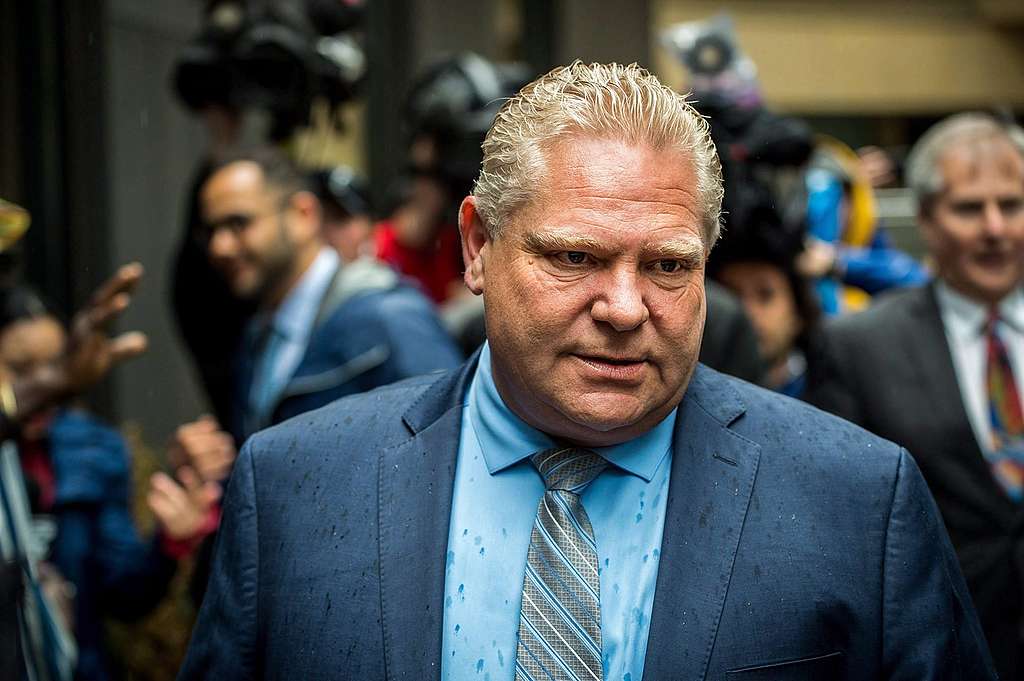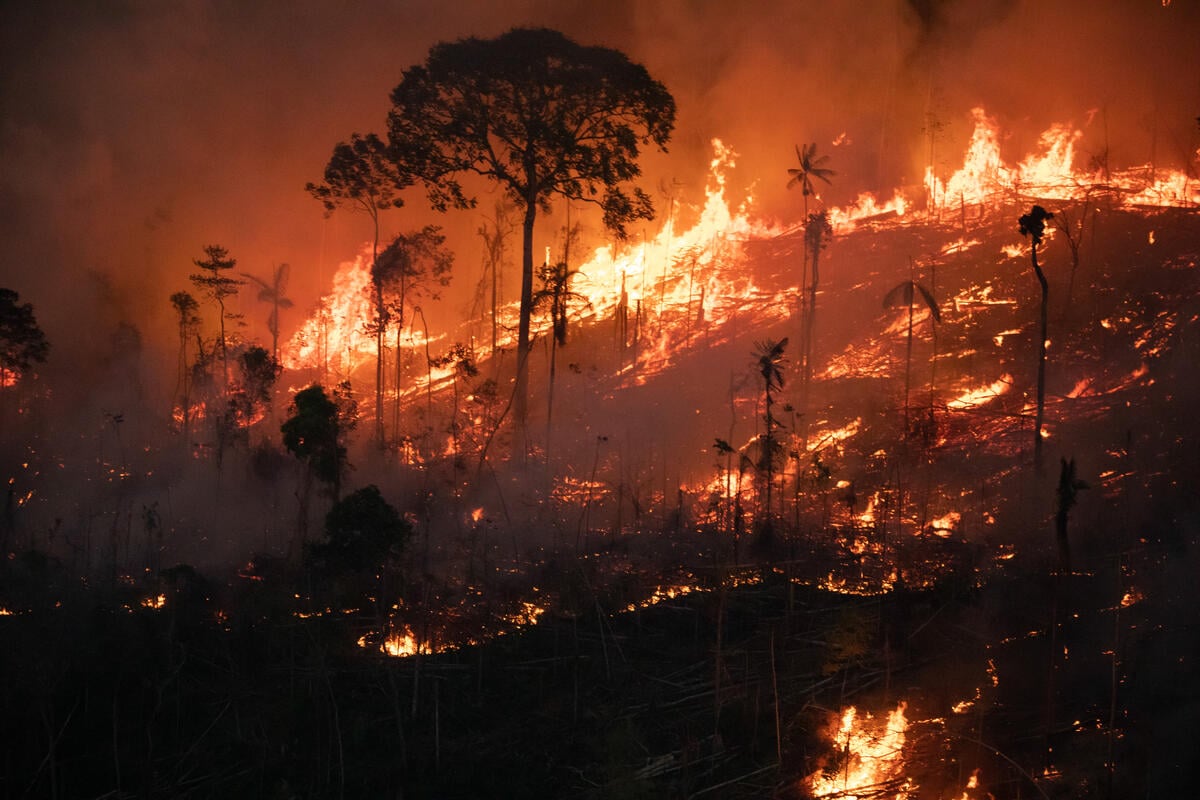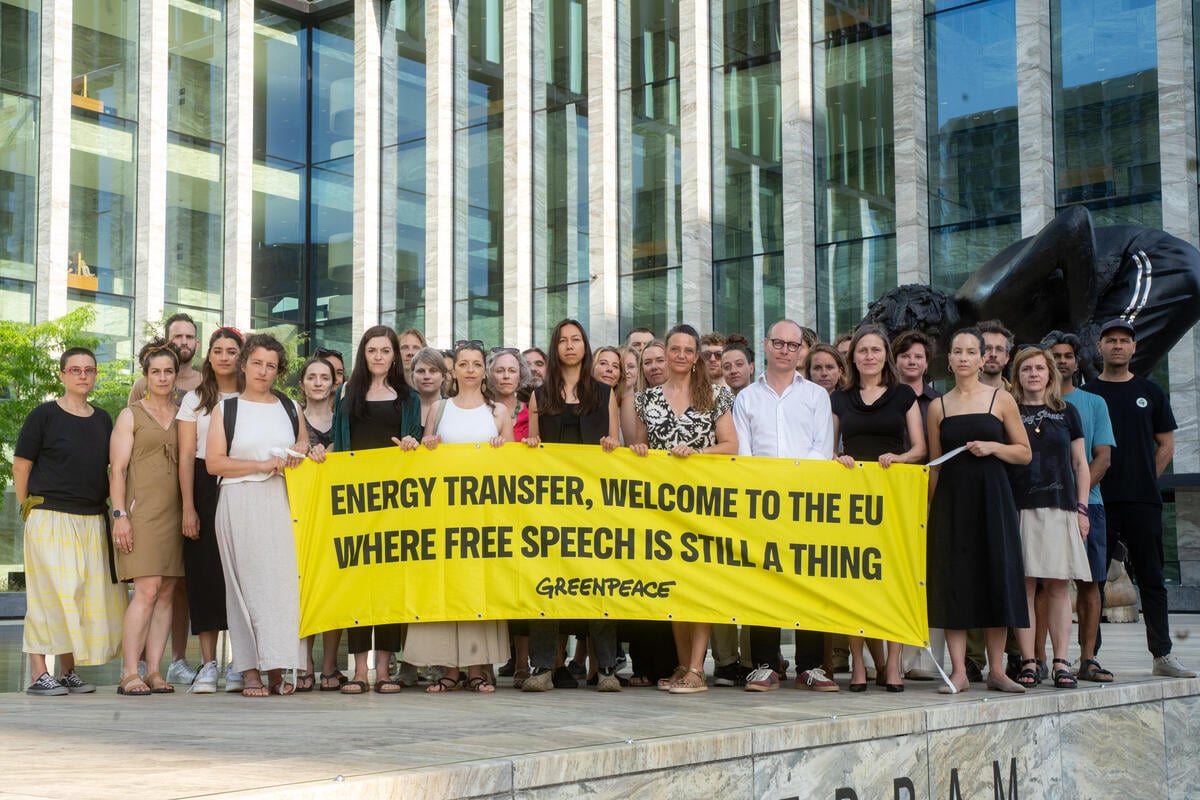The Government of Ontario only opened public consultations on their proposed legislation that would dismantle the provincial climate plan in response to a lawsuit launched by Greenpeace and Ecojustice. Over 4,400 submissions were made to the consultation through the Greenpeace Canada action page.
The full text of Greenpeace Canada’s submission on Bill 4: The Cap and Trade Cancellation Act can be found here.
Summary of Greenpeace Recommendations
The recent report from the Intergovernmental Panel on Climate Change found that limiting global warming to 1.5°C compared to 2°C would have “clear benefits to people and natural ecosystems,” yet we are currently on track to raise global average temperatures by 3°C this century.
There are only three possible policy options for responding to the threat posed by climate change: mitigate (reduce greenhouse gas emissions to limit the rise in temperature), adapt (increase resilience to those climate impacts from the temperature increase we can’t avoid), or suffer from the climate impacts that we do not avoid or are able to manage.
The policy choices we make will determine the relative mix: the more we do to reduce our greenhouse gas emissions and build more resilient communities, the less we will suffer. Conversely, a choice to abandon or delay action on mitigation and adaptation – as embodied in the current version of Bill 4: The Cap and Trade Cancellation Act – is a decision to maximize suffering.
Therefore, Greenpeace Canada urges Ontario legislators from all four parties to work together to amend Bill 4 in order to:
- Enshrine long-term greenhouse gas (GHG) reduction targets in law, as was the case under the 2016 Climate Change Mitigation and Low-carbon Economy Act.
- Set those GHG reduction targets at a level consistent with Ontario doing its fair share towards achieving the Paris climate agreement target. To avoid overshooting the Paris agreement goal of limiting warming to 1.5°C would entail a minimum 50% reduction in GHG emissions by 2030 and achieving net-zero emissions by 2050.
- Establish an independent, non-partisan and evidence-based expert committee to propose consecutive 5-year carbon budgets which lead to compliance with the long-term emission reduction targets.
- Drop the Government of Ontario legal challenge of the federal carbon pricing program.
- Commit to spending all of the revenues from the federal carbon pricing system on climate mitigation and adaptation programs.




